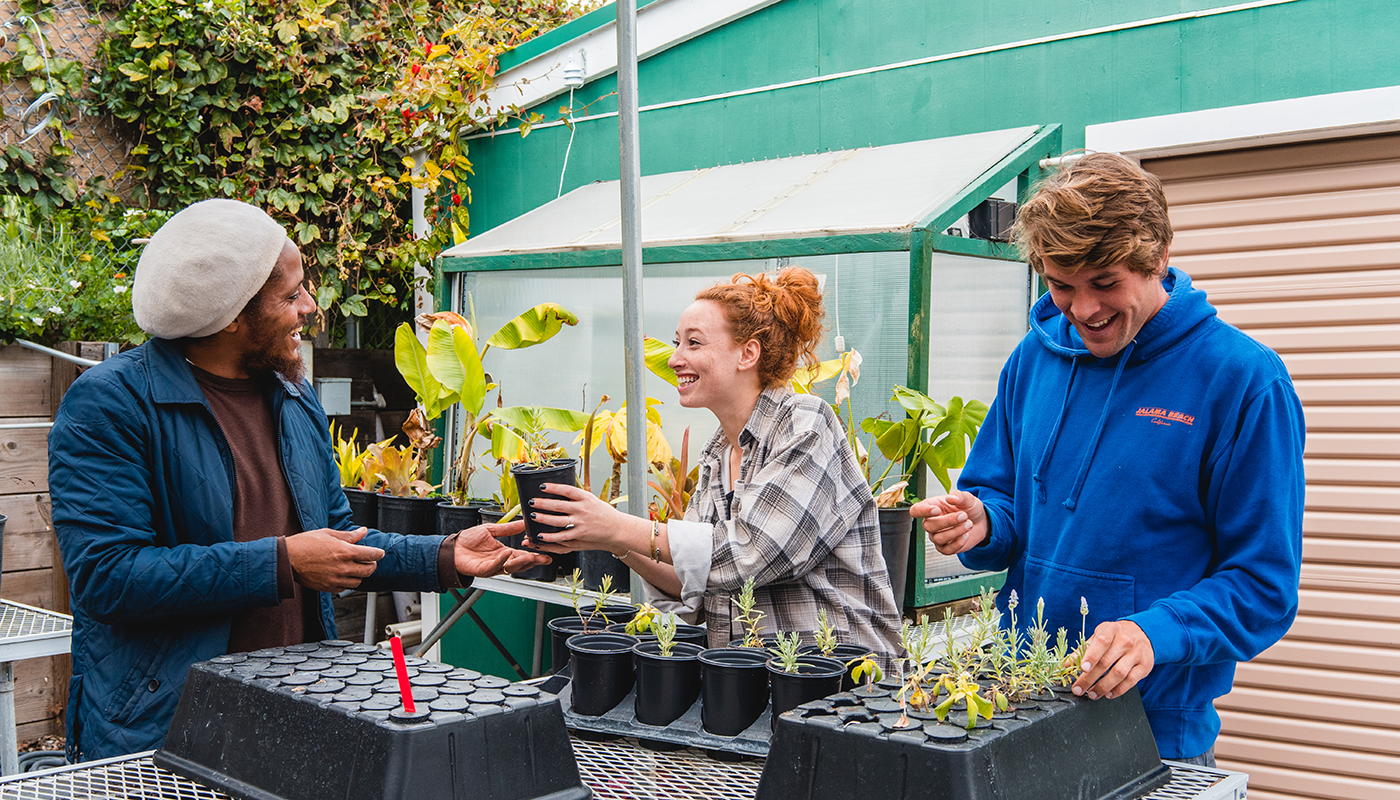
Environmental Horticulture
About Our Program
The Environmental Horticulture Program teaches the basic skills and provides state-of-the-art information required to develop a strong foundation for a variety of career specialties within the landscaping, ornamental horticulture and the regenerative and restoration industry. The program encourages professional standards, a strong work ethic and environmentally sound management practices.
Horticulture industry professionals from throughout the community serve as members of the college's Environmental Horticulture Advisory Committee. These "hands-on" professionals provide guidance, expertise and leadership in enhancing the program's response to community and industry needs. They meet yearly with program staff members, college administrators and student representatives to review program goals and objectives. Course offerings and content have been determined through this participation and are geared to meet the needs of the landscape, ornamental horticulture and habitat management trades.
On the college's East Campus, practical lab classes utilize two outdoor classroom gardens, the SBCC Lifescape and Chumash Point Ethnobotanical Preserve. The gardens are also the site of the nursery/ greenhouse unit.
The Environmental Horticulture (EH) Program is designed to provide the student with the necessary skills at the apprentice level to begin work in a wide range of landscape trades. There are three vocational approaches within the Environmental Horticulture program: (1) the one-semester Skills Competency Award approach; (2) the Certificate of Achievement approach, where the certificate is awarded after the one-year (two-semester) format is successfully completed; and (3) the certificate can lead to any one of the four two-year A.S. Degree options in:
- Landscape Contracting, C-27 License (satisfying one or more years of State requirements)
- Environmental Landscape Design
- Nursery & Greenhouse Technology
- Ecological Restoration and Management
The program cannot guarantee job placement; however, many landscape industry employers, in search of energetic and skilled apprentices, contact the college to request referral of program graduates. The EH Program Skills Competency Award, EH Certificate and Certified Green Gardener, and Associate Degrees often provide expanding job opportunities.
Program Student Learning Outcomes
Environmental Horticulture Degree
- Identify common native and ornamental landscape plants.
- Conduct a landscape assessment for ecological and economic sustainability.
- Trouble-shoot pest, water, soil and location problems of landscape plants and plantings.
- Provide recommendations for enhancing health of landscape trees, shrubs, other plants and soils.
- Describe and implement both conventional and organic methods of landscape maintenance and care.
- Design, plan and install basic irrigation systems.
- Design, plan and install basic hardscape elements.
- Utilize basic propagation methods to produce landscape plants.
- Demonstrate a strong work and personal ethic through care of horticultural tools and facilities, and through care of personal health during horticultural practices.
- Experience supervised, hands-on horticultural work.
- Demonstrate proficiency in native plant ecology and restoration.
- Demonstrate basic skills in landscape design.
Environmental Horticulture Certificate
- Identify common native and ornamental landscape plants.
- Conduct a landscape assessment for ecological and economic sustainability.
- Trouble-shoot pest, water, soil and location problems of landscape plants and plantings.
- Provide recommendations for enhancing health of landscape trees, shrubs, other plants and soils.
- Describe and implement both conventional and organic methods of landscape maintenance and care.
- Design, plan and install basic irrigation systems.
- Design, plan and install basic hardscape elements.
- Utilize basic propagation methods to produce landscape plants.
- Demonstrate a strong work and personal ethic through care of horticultural tools and facilities, and through care of personal health during horticultural practices.
- Experience supervised, hands-on horticultural work.
Faculty & Offices
Dr. Michael Gonella, Chair (A-162A, ext. 3042)
Alan Price, Dean (A-218 ext. 3044)